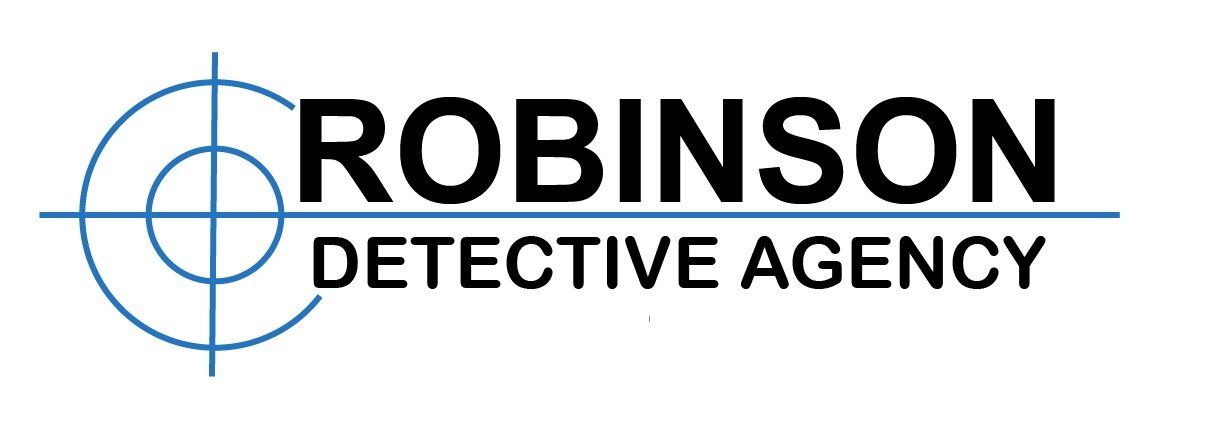Security Audits in New Hampshire: A Complete Guide for Local Businesses
For businesses in New Hampshire, protecting sensitive information and ensuring operational security are paramount.
Conducting regular security audits New Hampshire is essential to mitigate risks such as data breaches, cyber threats, and unauthorized access.
A security audit thoroughly examines your company’s physical security, cybersecurity, and operational security to identify vulnerabilities and ensure that controls are in place to protect your business.

Potential Security Threats for New Hampshire Businesses
New Hampshire businesses, like those across the nation, face a wide range of security threats that can compromise their operations, finances, and reputation.
These threats can come in many forms, including cyberattacks, data breaches, and physical security risks. Understanding these threats is the first step toward mitigating them through a comprehensive security audit and risk management strategy.
1. Cybersecurity Threats
In recent years, cybersecurity threats have become one of the most pressing issues for businesses across New Hampshire. According to a 2021 report by the New Hampshire Department of Information Technology, over 70% of businesses in the state experienced some form of cyber attack in the past year. This trend is reflective of a broader national issue, where cybercrime is predicted to cost the global economy $10.5 trillion annually by 2025, as reported by Cybersecurity Ventures.
Businesses in New Hampshire are particularly vulnerable to phishing and ransomware attacks, which have become more sophisticated in recent years. For example, ransomware attacks are a growing threat, with the FBI reporting a 300% increase in such attacks in 2020 alone. These attacks can lock businesses out of their systems, demanding payment for a decryption key, while also risking significant data loss and operational downtime.
2. Data Breaches
Data breaches are another significant threat that New Hampshire businesses face. According to a 2020 report by the Identity Theft Resource Center, the U.S. experienced 1,001 data breaches in 2020, a 17% increase from the previous year. While many of these breaches affect large corporations, small businesses are increasingly being targeted. The 2020 Verizon Data Breach Investigations Report found that 28% of data breaches involved small businesses, highlighting the growing importance of data security for businesses of all sizes.
The cost of a data breach can be devastating. The 2020 Cost of a Data Breach Report by IBM revealed that the average cost of a data breach for U.S. companies was $8.64 million, with the healthcare industry suffering even higher costs. For businesses in New Hampshire, the repercussions can go beyond just financial losses—reputational damage and loss of customer trust can severely impact long-term success.
3. Insider Threats
Not all security threats come from external sources. Insider threats, including employees, contractors, or vendors who have access to sensitive information, are a growing concern. A 2020 Ponemon Institute study found that 60% of data breaches were caused by employees, with 50% of those incidents being attributed to employees inadvertently exposing data, such as through poor security practices or lack of training.
In New Hampshire, businesses may not be aware of the extent to which their employees are vulnerable to social engineering attacks or may fail to properly vet contractors and vendors with access to confidential data. By regularly reviewing and updating security policies and ensuring comprehensive employee training in operational security (OpSec), businesses can mitigate the risk of insider threats.
4. Physical Security Risks
While digital threats dominate the security landscape, physical security is just as critical for New Hampshire businesses. Physical threats, such as unauthorized access, theft, and vandalism, can cause financial loss, disrupt operations, and put employees at risk. In fact, the Bureau of Justice Statistics reports that 1 in 3 businesses in the U.S. experience some form of property crime annually.
Businesses with valuable assets, sensitive documents, or proprietary equipment are particularly at risk. For New Hampshire companies, physical security measures like access controls, video surveillance, and secure storage solutions are critical to preventing and responding to these threats.
5. Natural Disasters and Environmental Threats
Although not as prevalent as cyber or physical security threats, natural disasters and environmental threats are an increasing concern for businesses in New Hampshire. The state’s vulnerability to severe weather, such as winter storms, flooding, and hurricanes, poses a unique risk to businesses' business continuity plans. According to the National Oceanic and Atmospheric Administration (NOAA), New Hampshire experienced eight major natural disasters in 2020 alone, including heavy flooding and severe storms.
These disasters can disrupt operations, damage physical infrastructure, and lead to data loss if businesses are not adequately prepared with disaster recovery plans and backup systems. Ensuring that your security audit includes an evaluation of environmental risks and mitigation strategies can help businesses stay resilient in the face of these threats.

Key Components of a Security Audit
A comprehensive security audit involves multiple components, each focusing on a specific aspect of your business’s operations. These key components help to identify potential vulnerabilities, enhance your security posture, and ensure that appropriate measures are in place to protect your business from cyber and physical threats. Below, we’ll explore the core elements of a security audit: digital infrastructure, physical security, and operational security.
1. Digital Infrastructure Review
The digital infrastructure review is one of the most critical components of a security audit, focusing on your IT systems, networks, and data protection strategies. It assesses the effectiveness of your cybersecurity measures and ensures that your business is equipped to handle emerging digital threats. During this review, the following areas are closely examined:
- Firewalls: Firewalls act as the first line of defense against unauthorized access to your network. The audit will assess the configuration, rules, and settings of your firewalls to ensure they are correctly protecting your business from external threats.
- Antivirus Software: Antivirus software is essential for identifying and neutralizing malware, viruses, and other malicious programs. The audit will check whether the antivirus programs on your devices are up-to-date and whether they provide adequate protection for your business against known and emerging threats.
- Patch Management Systems: Patches and software updates are crucial for maintaining the integrity of your systems and applications. A review of your patch management system ensures that all your software, operating systems, and security tools are updated regularly, addressing known vulnerabilities and reducing the likelihood of exploitation.
- Network Security: A key aspect of digital infrastructure, network security involves securing the communication channels within your business. This includes the analysis of encryption protocols, access controls, and network segmentation to prevent unauthorized access and ensure safe data transmission.
- Backup Systems: Ensuring that you have secure, redundant backups is an integral part of your digital infrastructure audit. The auditor will evaluate the backup protocols to ensure that you can recover data in case of a breach or cyberattack, such as ransomware, and prevent permanent data loss.
2. Physical Security Assessment
While digital security is critical, physical security plays an equally important role in protecting your business assets and information. A physical security assessment ensures that your company’s physical premises, equipment, and personnel are safe from external threats like theft, vandalism, or unauthorized access. This assessment covers various areas:
- Surveillance Systems: Surveillance systems, including cameras and monitoring tools, are vital for keeping track of activity around your business premises. The audit evaluates the placement, coverage, and functionality of surveillance cameras, ensuring that high-risk areas, such as entry points and sensitive areas, are adequately monitored.
- Building Access Controls: Limiting access to certain areas within your facility is essential for protecting sensitive information and assets. This includes evaluating your building’s entry systems, such as keycards, biometric scanners, or security guards, to ensure that unauthorized individuals cannot enter restricted areas. The audit checks that access is granted based on roles, ensuring that only authorized personnel can access certain zones.
- Physical Barriers: Barriers like gates, fencing, and locked doors act as physical deterrents against intruders. The audit assesses whether your barriers are strong and functional, protecting your business from break-ins or unauthorized access.
- Emergency Protocols: In the event of a security breach or emergency, your business needs to have a plan in place. The physical security assessment reviews emergency protocols, including evacuation plans, lockdown procedures, and coordination with local law enforcement. This ensures that all personnel know what to do in case of a threat or crisis situation.
- Visitor Management Systems: Keeping track of who enters and exits your premises is essential for preventing unauthorized access. The audit evaluates your visitor management system, ensuring that guests are logged, issued temporary access badges, and escorted when necessary.
3. Operational Security (OpSec) Check
Operational security, or OpSec, refers to the strategies and practices designed to protect sensitive information throughout its lifecycle within your organization. A critical component of any security audit, an OpSec review helps to safeguard your business from internal and external threats by ensuring that confidential data is securely managed and shared. Here's a breakdown of what’s involved in an operational security check:
- Understanding Operational Security (OpSec): The first step in the OpSec check is ensuring that your team understands the importance of
what is operational security. OpSec involves the processes and policies that prevent the exposure of sensitive information to those who do not need to know it. During the audit, experts assess whether your employees follow OpSec best practices to reduce the risk of unintentional data leaks.
- Data Access and Sharing: The audit examines how sensitive information is accessed, shared, and stored within your organization. It ensures that access to confidential data is limited to only authorized personnel and that proper encryption and secure communication channels are used when sharing information internally and externally.
- Employee Training: Proper employee training is a cornerstone of OpSec. The audit assesses whether your employees are properly trained on how to handle sensitive information, recognize phishing attempts, and follow security protocols to avoid security breaches. Training may include educating staff on topics such as
OpSec meaning, password policies, and secure data handling techniques.
- Incident Response Procedures: An effective OpSec strategy includes well-defined incident response procedures. The audit reviews your current response protocols to ensure that, in the event of a data breach or security incident, your team knows how to quickly contain the situation and minimize damage.
- Data Storage and Disposal: Proper data storage and disposal are crucial for ensuring that sensitive information is not exposed or mishandled. The audit examines how confidential information is stored and whether it is properly encrypted, both at rest and during transmission. It also evaluates your practices for securely disposing of data when it's no longer needed, such as shredding physical documents and wiping hard drives.
- Third-Party Access: If third-party vendors or partners have access to your data, it's essential to evaluate their security practices as well. The audit will assess how these third parties interact with your sensitive information and whether there are adequate safeguards to prevent unauthorized access.
New Paragraph

Why Security Audits are Essential for New Hampshire Businesses
Conducting regular security audits is not just a matter of ensuring compliance—it is a proactive measure that helps businesses across New Hampshire safeguard their assets, data, and reputation. Security audits provide valuable insights into vulnerabilities and ensure that the business can address potential threats before they become major problems. Below are key reasons why security audits are essential for New Hampshire businesses:
1. Protect Your Business from Emerging Threats
New Hampshire businesses, like those across the nation, are increasingly becoming targets of sophisticated cyber threats, from ransomware attacks to phishing scams and data breaches. The nature of these threats is constantly evolving, which makes it challenging to keep up with the latest risks.
Regular security audits offer businesses a comprehensive review of their cybersecurity measures, ensuring that systems are fortified against new vulnerabilities. By identifying weaknesses early, you can take proactive steps to address them before malicious actors exploit them. Staying ahead of cybercriminals through regular security assessments helps your business avoid financial and reputational damage that can result from a successful attack.
2. Strengthen Risk Management Services
A security audit is a cornerstone of an effective risk management strategy. During the audit process, businesses can uncover potential vulnerabilities in their operations, whether those vulnerabilities lie in the IT infrastructure, physical security, or internal policies. Identifying these weaknesses allows companies to develop targeted strategies for mitigating risks, thus strengthening their overall risk management services.
A thorough security evaluation provides insights that can guide business decisions, helping to prioritize actions based on severity and potential impact. For companies operating in industries where protecting customer data and sensitive information is essential, having a well-defined risk management plan based on regular audits is crucial for minimizing exposure to unforeseen threats.
3. Improve Security Operations
Security audits do more than just identify existing vulnerabilities—they also play a critical role in optimizing security operations. Regular audits help businesses pinpoint inefficiencies or gaps in their security processes and offer valuable recommendations for improvement.
For example, audits may reveal outdated firewalls, insufficient encryption protocols, or employee practices that could inadvertently expose the business to risks. By addressing these issues and implementing recommended security controls, businesses can strengthen their defenses.
Improving security operations not only reduces the likelihood of a breach but also enhances the overall performance and reliability of security systems. This ongoing optimization helps ensure that your business can respond swiftly and effectively to new and emerging threats.
4. Ensure Compliance and Gain Customer Trust
Many industries require strict adherence to security regulations and standards. Whether it's GDPR, HIPAA, or PCI-DSS compliance, failing to meet these regulatory requirements can lead to costly fines, legal challenges, and loss of reputation.
Regular security audits help ensure that your business remains compliant with industry-specific security standards, preventing potential legal or financial consequences. Compliance, however, is not just about avoiding penalties—it is also about building trust with your customers and partners.
Businesses that prioritize security audits demonstrate to their clients that they are serious about protecting their data and operations.
By meeting compliance standards, you show your customers that you value their privacy and security, fostering long-term relationships based on trust. Customers are far more likely to engage with companies that have robust security practices in place, knowing that their information is being handled with care.

How to Conduct a Security Audit for Your New Hampshire Business
1. Define the Scope of Your Audit
The first step is to decide what aspects of your business need auditing—be it cybersecurity, physical security, or both. Clearly defining the scope ensures the audit covers all critical security areas.
2. Assemble a Qualified Team
Gather a team of experts, including IT specialists, risk management professionals, and security consultants. A team with diverse expertise ensures a comprehensive security assessment.
3. Perform a Thorough Evaluation
The audit involves evaluating your current security practices and identifying weaknesses. This process provides a detailed picture of your security posture, ensuring that vulnerabilities are prioritized based on potential risks.
4. Create a Strategic Action Plan
Based on the audit results, develop a plan to address the identified vulnerabilities. The action plan should outline clear steps for improving security, specifying timelines and responsibilities.
5. Continuous Monitoring and Review
Security isn’t a one-time task. Periodically review your security program to ensure it evolves with emerging cybersecurity threats. Regular monitoring keeps your business protected against evolving risks.
The Role of Technology in Security Audits
Technology is pivotal in the success of a security audit. Security evaluation tools can automate much of the audit process, making it easier to identify vulnerabilities and implement solutions quickly. These tools provide valuable insights that can improve your business's security operations.
1. Security Evaluation Tools
Automated tools streamline the audit process, detecting cyber threats and data breaches while providing actionable reports.
2. Cybersecurity Solutions
Comprehensive cybersecurity solutions, such as firewalls and intrusion detection systems, are essential to protect your business from cyberattacks. Integrating these tools into your business’s operations adds another layer of security and enhances overall risk mitigation.
3. Advanced Analytics
Advanced analytics tools provide deeper insights into your security strategy, predicting potential threats and analyzing the effectiveness of your current security measures. These tools help businesses refine their security program for better protection.
Make Security Audits a Priority for Your New Hampshire Business
In today’s digital landscape, security audits are indispensable for businesses in New Hampshire. Regular security evaluations not only protect your business from cyber threats and data breaches but also ensure compliance and enhance customer trust.
By conducting thorough security assessments and addressing vulnerabilities through robust security practices, you can improve your overall security posture and safeguard your company’s long-term success. Prioritize security audits as part of your risk management strategy and enjoy the peace of mind that comes with knowing your business is secure.
Protect what matters most with confidence. At Robinson Detective Agency, we specialize in comprehensive investigative and security services for law firms and corporations across New Hampshire. Whether you need a thorough security audit, risk assessment, or discreet investigation, our experienced team is here to help. Contact us today to schedule a consultation and take the first step toward a more secure future.

